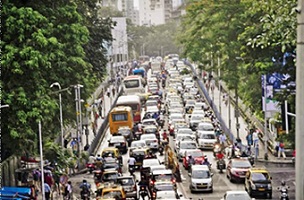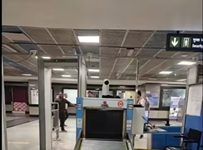Mumbai’s intelligent traffic management system (ITMS) plan got a major boost when the state cabinet approved a budget of Rs 891 crore. The system’s main focus is to ease the city’s traffic woes. The city with an approximately 1 crore population, has about 34 lakh registered vehicles. For every 1,000 people, 261 own vehicles. A large number of vehicles ply within a land area of 438 square kilometres making traffic movement slower by the day.
According to government sources, ITMS would find a solution to the city’s traffic problems, which needs to be managed on a priority basis to save fuel, prevent air pollution and increase the efficiency of the workforce that spends most of their time travelling. The system would be fully operational in two years.
The sources further said 95 per cent of the 2,000 km of roads the city has, are managed by the BMC. So, it was important to establish coordination between all the agencies, which in turn could work with the traffic police. The basic purpose of ITMS was to study driving habits, traffic patterns and offences. The artificial intelligence could analyse data and develop a customised solution for a given traffic situation and also prevent accidents.
According to sources, the ITMS would quantify the number of vehicles plying on a particular road length and determine the duration of traffic signals. The signal duration could be customised as and when required to ease traffic flow in a coordinated effort across the particular road length and its subsidiaries. The other purpose that the system would serve was to identify license plates, speeding vehicles and driving in the wrong direction. This would help increase the enforcement and recovery of penalties for traffic offences.








